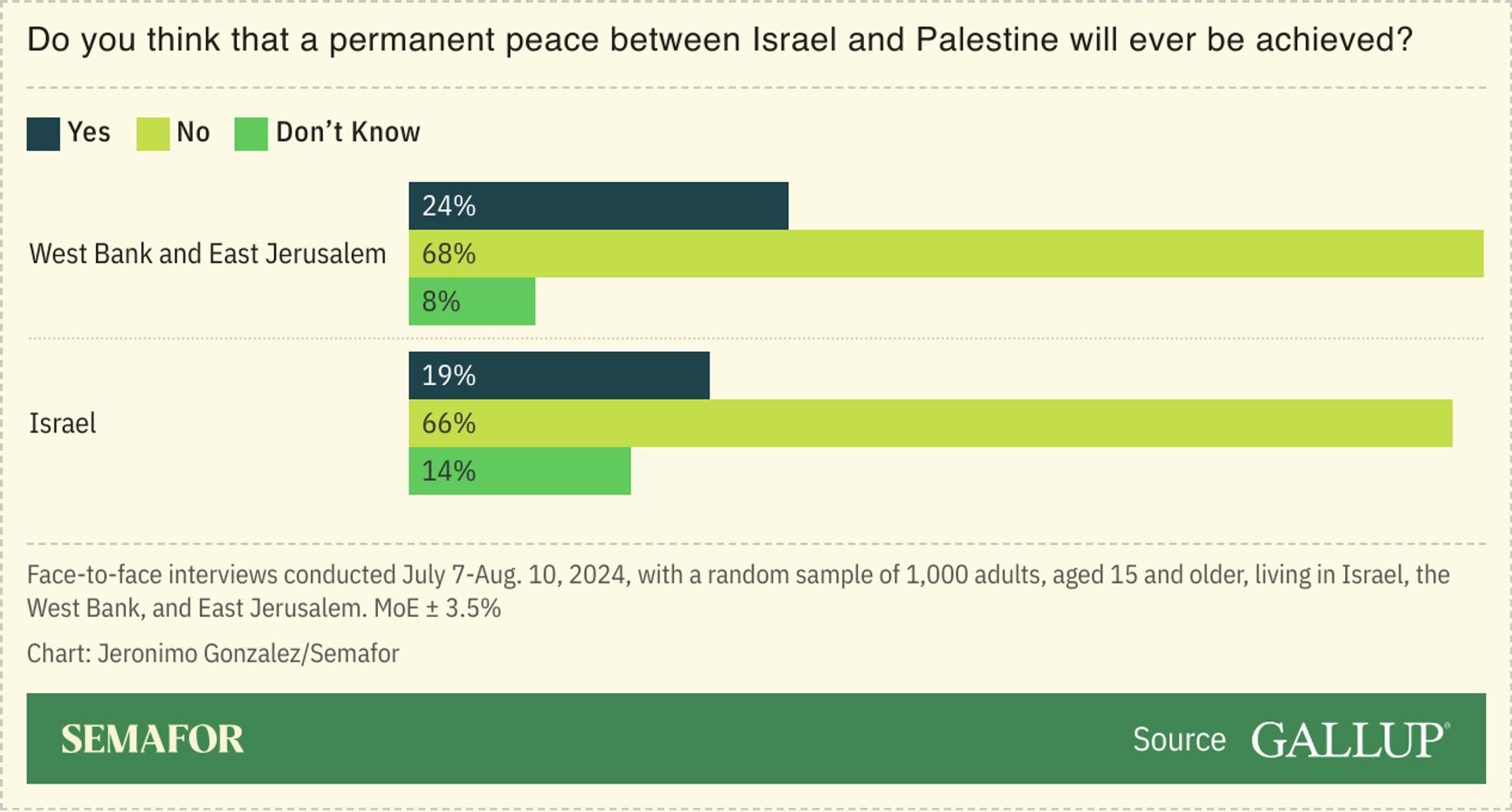The News
Israel’s military said it had launched a ground incursion into Lebanon, describing it as a “limited” operation targeting Hezbollah.
However, officials for Hezbollah, an Iran-backed militia and Lebanon’s strongest political party, said no Israeli troops had entered Lebanon early on Tuesday.
The offensive follows weeks of attacks targeting Hezbollah’s senior leadership and its forces, at huge cost to Lebanese civilians: More than 1,600 people have been killed since the cross-border attacks between Israel and Hezbollah began last year, most of the casualties recorded in the last week. And up to a million people have been displaced by the strikes, according to Lebanese authorities.
SIGNALS
Power dynamics inside Israel and wider Middle East are shifting
While Israel’s military appears bogged down in Gaza as the anniversary of Hamas’ Oct. 7 attacks nears, the country’s recent onslaught against Hezbollah has buoyed the once-flailing fortunes of Prime Minister Benjamin Netanyahu. His approval rating has bounced back from an all-time low following the Oct. 7 attacks. More broadly, the intensification of Israel’s strikes on Hezbollah have also upended regional dynamics: “We are witnessing a substantial shift in the balance of power in the Middle East,” the former head of the UK’s MI6 intelligence agency wrote in the Financial Times — particularly as Iran continues to show restraint in responding to attacks on its proxies, as Tehran cannot risk instability while it undergoes an unpredictable leadership transition.
The US is looking ‘powerless’
Washington said Israel had informed the US it was about to start its ground operation in Lebanon, with the Pentagon adding Monday that it would send a “few thousand” extra troops to help defend Israel if necessary. The US secretary of defense also warned that Iran would face “serious consequences” if it attacked Israel in a show of support to Hezbollah, while President Joe Biden pressed for a ceasefire. The developments underscore a growing divide between Israel and the US, with the latter looking increasingly “powerless” to rein in Netanyahu or exert any major influence on other warring parties, in a pattern of “American impotency and Israeli defiance,” CNN noted.
Few believe Israeli-Palestinian peace can be achieved
Despite international efforts to broker peace in the Middle East, some two thirds of people living in Israel and in the Israeli-occupied West Bank and East Jerusalem don’t think permanent peace will ever be achieved, a new Gallup survey showed. Similarly, more than 60% of people on both sides don’t support a two-state solution. On the one hand, Israelis have been in a “belligerent mood” toward Palestinians since Oct. 7, a pollster told Politico, and are hardening their stance; on the other, Palestinians feel a two-state solution is “unjust,” and policymakers need to confront the fact that “partition is unattainable,” a Palestinian expert wrote in The New York Times.

Israel-Hezbollah war will drive economic insecurity
Both Israel and Lebanon are likely to face more economic insecurity as the conflict between the former and Hezbollah escalates, an expert told France 24. Credit rating agency Moody’s unexpectedly downgraded Israel last week, Reuters reported, adding that an all-out war with Lebanon would cause Israel’s economy to shrink by over 3% and its deficit to go up to 9%. Lebanon’s economy has been in a deep crisis for five years and the country’s political landscape is fractured and dysfunctional, and will likely be pushed into “total collapse,” an expert wrote in The Conversation, and could even face another civil war.

